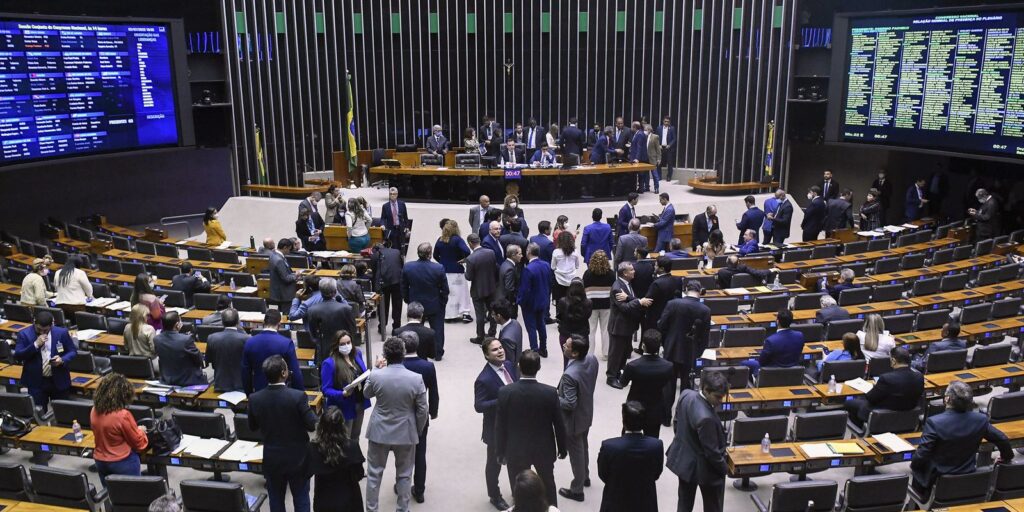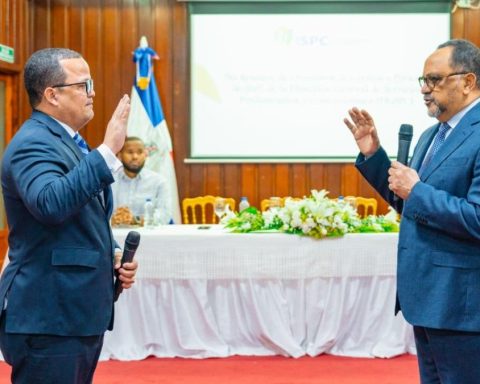The closure of the Constitutional Convention and the beginning of the campaign for the exit plebiscite on September 4, has forced the political figures associated with the former Coalition or the center-left to explain their position regarding Approval and Rejection. Approve to reform, approve to improve and even reject to give rise to a new constitutional process, are some of the proposals signed by militants and former militants of parties such as the PPD, the PS, the Liberal Party (PL), the Radical Party ( PR) and a divided DC.
In this context, this Tuesday, the Approval added a new face, with a long political career linked to the former Concertación and former Nueva Mayoría. This is the former Minister of Foreign Affairs and also former head of the General Secretariat of the Government, Heraldo Muñoz (PPD), who through social networks gave an account of his position in favor of approving the exit plebiscite, but with the willingness to ” perfect” certain aspects of the proposed new Constitution that, in his opinion, should be improved.
Through his Twitter account, Muñoz expressed: “I will vote I Approve. Not because the constitutional text is perfect, it is far from that. But it is the platform to improve and amend errors and gaps. I appreciate, for example, the social and democratic State of law, the protection of the ocean and that for the first time appears in a Constitution”.
Whoever was the presidential candidate for the 2021 election and who decided to drop said candidacy due to internal tensions in the then opposition, considers that the new Constitution proposal is the necessary floor to ensure the transformations that, he points out, the majority of the country requires. However, he does not believe in the Approval alone, and maintains that the possibility of improving the text prepared by the Convention is the most viable alternative to attract the still undecided electorate. For Muñoz, yes, the constituent process does not end on September 4, since the structure of a new Constitution must be built – in his opinion – from the triumph of the Approval.
-Why do you decide to publicly demonstrate in favor of the Approval? Do you subscribe to the “approve to reform” formula of your party, the PPD? What are the aspects of this proposed new Constitution that you consider to be positive?
-My intention was to state that I am for the Approval, but with the perspective of improving the contents of this constitutional text, which is far from perfect and has many gaps and errors, but constitutes a platform on which it can be improved and have a new Constitution, rescuing some elements that this proposal does have and that are very important. In the first place, we must value that Chile be constituted as a social and democratic State of Law, which I believe is fundamental to replace this subsidiary State and underlying the neoliberal economic model. Then there are other elements that I rescue and that are very important, such as the protection of nature and specifically for me, the protection of the ocean, considering that I am an ambassador of the ocean at a global level on behalf of various environmental foundations, for the work we did in the Government of former President Bachelet.
-What is, in your opinion, the difference between improving and reforming, after the triumph of the Approval?
-For example, in terms of social rights, which I think should be elaborated further, to establish that those rights of the new proposal should be guaranteed. I think there are several elements that should be corrected, and that is why my option is Approve, but with a sense of making it clear that the constituent process does not end on September 4, that we are going to have to continue building the constitutional architecture, but that has to be based on a platform, and the platform is the Approval. That does not prevent us from recognizing that the proposal has shortcomings, omissions, and even errors.
-What are those aspects that you consider should be “improved” in the proposed new Constitution?
-There are issues of the New Constitution with which I do not agree. In the first place, I do not agree that the electoral system has not been established, where this asymmetric bicameralism with presidentialism is an issue that does not convince me at all. For its part, I believe that the paragraphs on foreign policy are practically naive, and could, rather, be the subject of a foreign policy program than of a Constitution. So, there are many issues that would have to be changed, but taking stock of the pros and cons, I think that Approval gives us that possibility, even if it is 4/7 with a plebiscite.
-What do you think of Chile being considered a multinational state?
-I believe that, in the case of Chile, establishing a plurinational State does not have much to do with the other two Constitutions in Latin America that, if they establish it, which are those of Bolivia and Ecuador, where there is a large majority of the population that is indigenous. In the case of Chile, the indigenous representation is 12%, so I think there should be recognition of the original peoples and a clearly established mechanism for land transfers, and, ultimately, the dimension of respect for the rights of indigenous peoples must be clearly established. In that sense, I think that plurinationality is a debatable issue, where I have certain reservations with the meaning of indigenous territorial autonomy and consent regarding matters that may affect their rights, which is established in Agreement 169 of the ILO, regarding the indigenous consultation. I believe that these are matters that could be discussed, without subtracting the rights of indigenous peoples, where I absolutely agree that there is a debt of the Chilean State in this regard.
-Some sectors have raised the alleged infeasibility of the formula of “approve to reform” or to “improve”, do you think that option is viable? And how do you think that design can favor the campaign for Approval?
-I believe that the option of approving to improve is viable, because I have the impression that there are many people who believe that this constitutional text is perfectible, and that there have to be amendments and improvements, and therefore, the perception that I have is that there must be a consensus to improve those issues that deserve to be perfected, and that is why I say that I trust the good sense of the Chilean people, that once the process is finished, if the Approval wins, there will be a 4/7 majority to reform all those matters where there are doubts, omissions or errors. Ultimately, I think it is something that can be achieved. I think that approving to improve is the way to attract the undecided sectors, even in the world of the center left. If we say that we are for Approval, but willing to improve and we clearly say which elements are the ones that we consider should be improved, I think that it is an alternative that can tilt the undecided in favor of Approval.
-What do you think of figures from the center-left or former Concertación who have decided to express themselves in favor of Rejection? Do you think it is a mistake to rely on the discourse of the right, around rejecting and then starting a new constituent process or changing the 80?
-I greatly respect the people who have decided to publicly express their option for Rejection, including people from the center left. In addition, I do not think that those who are going to vote for Rejection and belong to the world of the center left, are denying their progressive condition, but they have a different vision and it must be respected. Now, I think there are plenty of reasons to be skeptical about whether the right will be willing, if the Rejection wins, to profoundly change the current Constitution, or start a new constituent process, because it seems that we all agree that makes it necessary to create a new Fundamental Charter, and in that there should be no differences. So, I think there are historical reasons to be skeptical about the effective will of the right to go down the path of profound reforms. I have heard many representatives of that sector say that they have that will, but history is rather the opposite, where there have always been obstacles, and that is why we finally reached the constituent process.
-Do you not believe, then, in the so-called Plan B after a hypothetical triumph of the Rejection? Making political fiction, what are the possible scenarios to push a constitutional change, whatever the result in the plebiscite?
-There is no Plan B. There are two options here, where if we add those who want to approve to improve or reform, and those who want to reject, but want a new Constitution, it represents a large majority, but there is no Plan B. On the ballot on September 4, the options will be Approve or Reject, where there are no third alternatives. However, I believe that as of September 5 we are going to have to resume the constitutional process, because I think that the plebiscite will not end, and there we have to look for a national pact, which seeks to unite consensus towards the changes that it is going to have. that Constitution, either to improve the proposal of the Convention, or, if the Rejection wins, to ultimately start work towards a new Fundamental Charter, whether it is about profound reforms to the current Constitution or another process, which will have to be democratically defined.


















